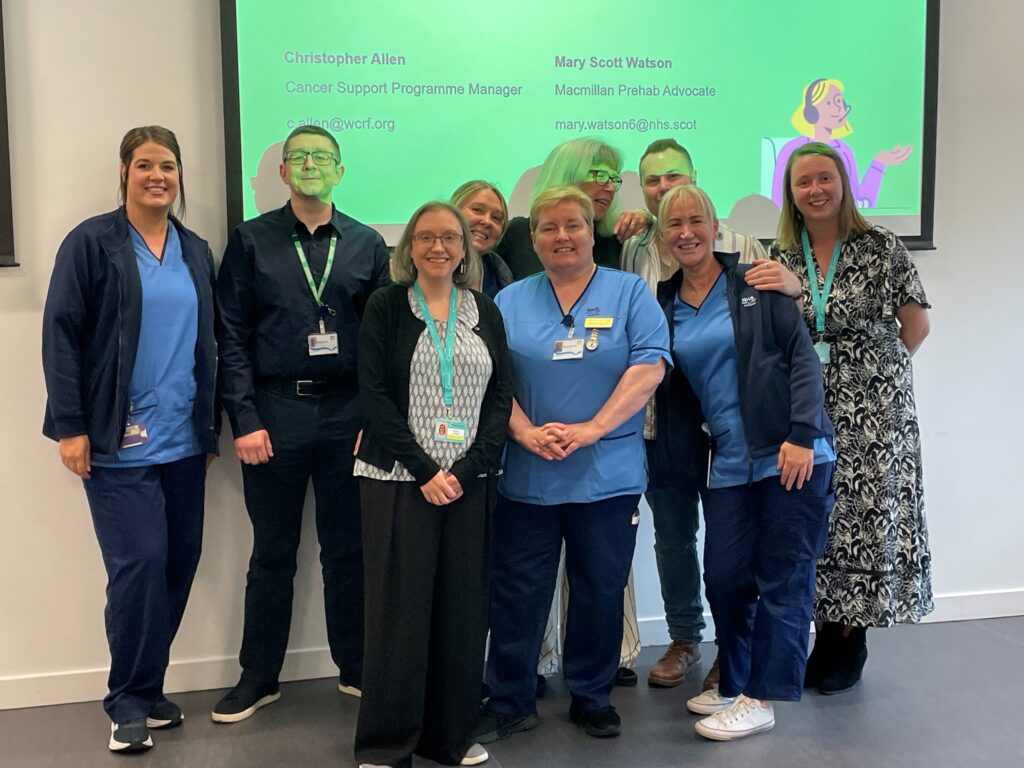
NHS Greater Glasgow and Clyde (NHSGGC) has partnered with the World Cancer Research Fund (WCRF) to launch a pioneering pilot programme aimed at enhancing outcomes for individuals newly diagnosed with colorectal cancer.
The initiative, the first of its kind in Scotland, will provide expert nutritional advice and support to patients at the Queen Elizabeth University Hospital (QEUH).
The current care model focuses on patients most at risk of malnutrition being referred to specialist dietitians however, this pilot seeks to add a step by providing all patients early access to nutritional advice and support delivered through WCRF’s Cancer and Nutrition helpline.
Dr Myra McAdam, Consultant Anaesthetist at Glasgow Royal Infirmary and West of Scotland Cancer Network Regional Clinical Lead Prehabilitation, has provided clinical oversight to the working group. She emphasised the importance of this initiative, saying, “The aim of the pilot is to increase the availability of nutritional support for patients diagnosed with cancer to improve their treatment outcomes. We know that patients who are nutritionally optimised have improved outcomes and reduced complications with cancer treatment.”
Nutrition is a vital component of cancer care, yet many patients face challenges such as taste changes, fatigue, and unintentional weight loss during treatment. A 2020 national survey revealed that 45% of cancer patients experienced diet-related issues, with nearly half reporting weight loss, 80% of which was unintentional.
Dr McAdam added, “Nutrition is important in patients undergoing treatment for cancer as it provides the energy for tolerating treatment and gaining the benefits of treatment.
“We hope patients will benefit by feeling empowered to make conscious choices about nutrition, understanding the importance of protein intake and see fewer complications or side effects from cancer treatments.”
The pilot will initially focus on patients at low to medium risk of malnutrition, offering them a personalised consultation with a WCRF dietitian. In addition to prehabilitation support, participants can continue to receive advice throughout their treatment journey. Each patient will also receive a £15 grocery voucher to assist them in making healthy food choices.
Christopher Allen, Cancer Support Programme Manager at WCRF, said, “Specialist dietetic services focus on supporting patients at the highest risk of malnutrition. That’s why WCRF is incredibly proud to be providing direct support to the NHS in assuring that every patient has the opportunity to benefit from expert nutritional information and support.”
The pilot will run for one year and will monitor the impact of universal nutritional prehabilitation on patient wellbeing and treatment outcomes. If successful, it could pave the way for wider implementation across NHSGGC and potentially throughout Scotland.
Dr McAdam concluded, “This pilot is important because not only will patients benefit, but it is the first of its kind in NHS Scotland. It offers patients a unique opportunity and, when successful, opens the door for ongoing funding for such opportunities for cancer patients not just in GGC but across Scotland.”

